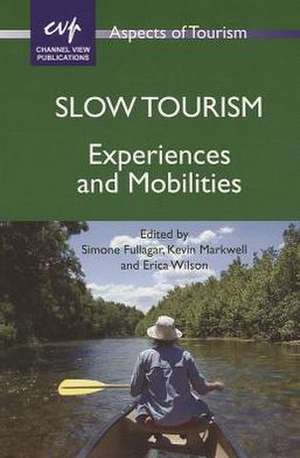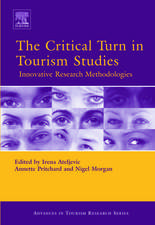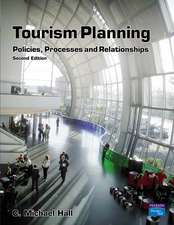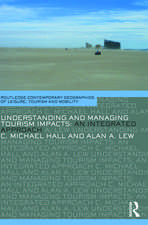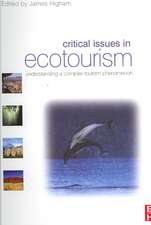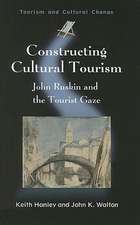Slow Tourism: Aspects of Tourism (Paperback), cartea 54
en Limba Engleză Paperback – 22 mar 2012
Din seria Aspects of Tourism (Paperback)
-
 Preț: 280.69 lei
Preț: 280.69 lei -
 Preț: 263.29 lei
Preț: 263.29 lei -
 Preț: 300.24 lei
Preț: 300.24 lei -
 Preț: 383.31 lei
Preț: 383.31 lei -
 Preț: 298.33 lei
Preț: 298.33 lei -
 Preț: 294.46 lei
Preț: 294.46 lei -
 Preț: 296.97 lei
Preț: 296.97 lei -
 Preț: 293.54 lei
Preț: 293.54 lei -
 Preț: 309.87 lei
Preț: 309.87 lei -
 Preț: 377.55 lei
Preț: 377.55 lei -
 Preț: 374.65 lei
Preț: 374.65 lei -
 Preț: 268.84 lei
Preț: 268.84 lei -
 Preț: 296.42 lei
Preț: 296.42 lei -
 Preț: 301.20 lei
Preț: 301.20 lei -
 Preț: 294.46 lei
Preț: 294.46 lei -
 Preț: 296.97 lei
Preț: 296.97 lei -
 Preț: 376.56 lei
Preț: 376.56 lei -
 Preț: 297.36 lei
Preț: 297.36 lei -
 Preț: 292.55 lei
Preț: 292.55 lei -
 Preț: 380.43 lei
Preț: 380.43 lei -
 Preț: 298.33 lei
Preț: 298.33 lei -
 Preț: 295.45 lei
Preț: 295.45 lei -
 Preț: 391.00 lei
Preț: 391.00 lei -
 Preț: 388.48 lei
Preț: 388.48 lei -
 Preț: 292.55 lei
Preț: 292.55 lei -
 Preț: 291.57 lei
Preț: 291.57 lei -
 Preț: 373.68 lei
Preț: 373.68 lei -
 Preț: 297.36 lei
Preț: 297.36 lei - 12%
 Preț: 242.08 lei
Preț: 242.08 lei - 13%
 Preț: 201.51 lei
Preț: 201.51 lei - 13%
 Preț: 239.78 lei
Preț: 239.78 lei - 14%
 Preț: 196.62 lei
Preț: 196.62 lei
Preț: 297.36 lei
Nou
Puncte Express: 446
Preț estimativ în valută:
56.91€ • 59.19$ • 46.98£
56.91€ • 59.19$ • 46.98£
Carte tipărită la comandă
Livrare economică 14-28 aprilie
Preluare comenzi: 021 569.72.76
Specificații
ISBN-13: 9781845412807
ISBN-10: 184541280X
Pagini: 233
Ilustrații: black & white halftones
Dimensiuni: 155 x 234 x 13 mm
Greutate: 0.41 kg
Editura: Channel View Publications Ltd
Seria Aspects of Tourism (Paperback)
ISBN-10: 184541280X
Pagini: 233
Ilustrații: black & white halftones
Dimensiuni: 155 x 234 x 13 mm
Greutate: 0.41 kg
Editura: Channel View Publications Ltd
Seria Aspects of Tourism (Paperback)
Notă biografică
Cuprins
Chapter 1: Starting slow: Thinking through slow mobilities and experiencesSimone Fullagar, Kevin Markwell, Erica WilsonPositioning Slow Tourism Chapter 2: Speeding up and slowing down: pilgrimage and slow travel through time Chris Howard Chapter 3: On the periphery of pleasure: hedonics, eudaimonics and slow travel Kevin Moore Chapter 4: Slow'n down the town to let nature grow: Ecotourism, social justice and sustainability.Stephen Wearing, Michael Wearing and Matthew McDonaldSlow Food and Sustainable Tourism Chapter 5: The contradictions and paradoxes of slow food: Environmental change, sustainability and the conservation of taste C. Michael Hall Chapter 6: Eat your way through culture: Gastronomic tourism as performance and bodily experienceFabio Parasecoli and Paulo de Abreu e Lima Chapter 7: "Make haste slowly": Environmental sustainability and willing workers on organic farms Margo Lipman and Laurie MurphySlow Mobilities Chapter 8: Gendered cultures of slow travel: women's cycle touring as alternative hedonism Simone Fullagar Chapter 9: Wandering Australia: Independent travellers and slow journeys through time and spaceMarg Tiyce and Erica Wilson Chapter 10: The truth of the body on random roads: the resurgence of hitchhiking and 'self-powered' practices Michael O'Regan Chapter 11: 'If you're making waves then you have to slow down': Slow tourism and canalsJulia FallonSlow Tourism Places Chapter 12: Travellin' around on Yukon time in Canada's north Suzanne de la Barre Chapter 13: 'Fast Japan, slow Japan': Shifting to slow tourism as a rural regeneration tool in Japan Meiko Murayama and Gavin Parker Chapter 14: Tribe tourism: A case study of the Tribewanted Project on Vorovoro, Fiji Dawn Gibson, Stephen Pratt & Apisalome Movono Chapter 15: Slow tourism initiatives: An exploratory study of Dutch lifestyle entrepreneurs in France Esther Groenendaal Chapter 16: Slow travel and Indian culture: Philosophical and practical aspects Sagar Singh Chapter 17: Reconceptualising slow travel and tourismKevin Markwell, Simone Fullagar and Erica Wilson
Recenzii
In this well researched collection of 17 Chapters written by key scholars this book critically engages with the question: what do slow mobilities mean for tourism? Providing international case studies, multidisciplinary, philosophical and theoretical explorations, the book contributes timely, new and refreshing insights that should be read by anyone interested in the emerging phenomenon of slow travel.Alison McIntosh, The University of Waikato, New ZealandThis book's contributors pose a number of fascinating questions, particularly what do slow mobilities mean for tourism, do slow mobilities suggest different ways of engaging with people and place and do slow travel experiences lead us to connect with and understand the world differently? Their explorations are stimulating and thought-provoking. This is a book whose time has come; indeed its editors are ahead of the curve in assembling a collection of tourism-focused essays which challenge today's unrelenting and ultimately unsustainable pace of life. It makes for fascinating reading.Annette Pritchard, Cardiff Metropolitan University, UK
